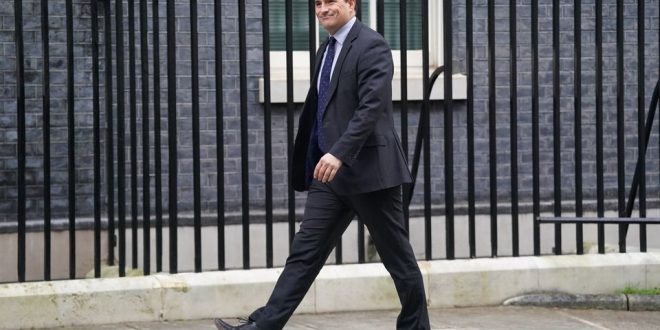AT News
KABUL – The UK government has been cautioned about the potential risk of homelessness for thousands of vulnerable Afghan families who sought refuge in the UK. Thousands of Afghan families have been instructed to vacate their temporary accommodations by the end of this month.
The UK has pledged to provide a safe haven for thousands of displaced individuals, many of whom have been residing in hotels since their arrival. However, Cabinet Office minister Johnny Mercer recently informed Parliament that the government expects Afghan refugees to become self-reliant and independent of central support.
According to recent data from the end of March, approximately 8,000 people still reside in temporary bridging accommodations, with more than half of them having stayed there for over a year. While Mr. Mercer noted that progress has been made, he acknowledged that more efforts are required to address the situation effectively.
In a written statement on Tuesday, Mr. Mercer revealed that people are expected to vacate their temporary accommodations by the end of the designated notice period. Residents were provided with at least three months’ notice, with some notice periods expiring by the end of July.
As a gesture of goodwill, certain exceptions will be made. These include individuals with medical conditions necessitating specific hospital attendance and those who have already been matched with settled accommodations but face a short gap before they can move.
The Local Government Association (LGA), representing councils, expressed agreement that Afghan families should not continue residing in hotels. They share the government’s determination to provide permanent homes for these families. Nevertheless, the LGA pointed out that the prospect of finding affordable, long-term accommodations in preferred areas for all those still in hotels would be “extremely challenging.”
The LGA emphasized the increased demand for housing across the country and the acute shortage of available options, compounded by pressures from asylum and resettlement schemes. Consequently, there is a real risk that families may end up presenting themselves as homeless to councils.
Shaun Davies, Chairman of the LGA, stated that councils remain deeply concerned about the situation. He particularly highlighted the challenges faced by larger and multi-generational families, some of whom are particularly vulnerable. The fear is that they may have to move into high-cost temporary accommodations rather than secure permanent homes.
In response to the housing crisis, the government has allocated £7,100 per person of flexible funding to support the move-on process. This includes providing deposits, furniture, rental top-ups, and rent advances.
Efforts are underway to minimize multiple moves and disruptions for families before the hotel closures commence. Additionally, measures will be taken to secure school places for any children relocating to new areas during the autumn period.
As the UK faces the pressing challenge of accommodating vulnerable Afghan refugees, the situation demands urgent attention and collaborative efforts to ensure their welfare and integration into society.
 Afghanistan Times
Afghanistan Times




